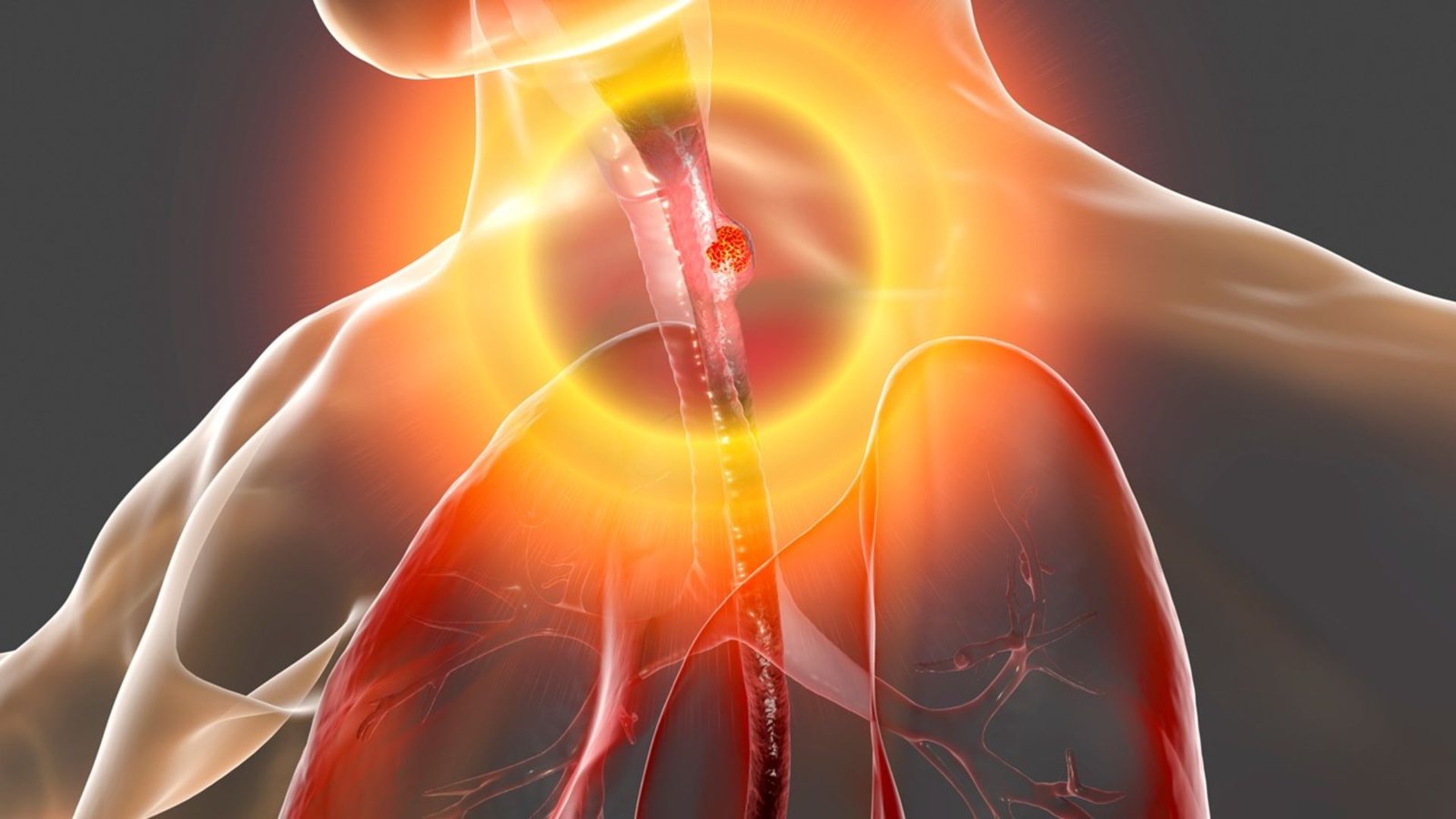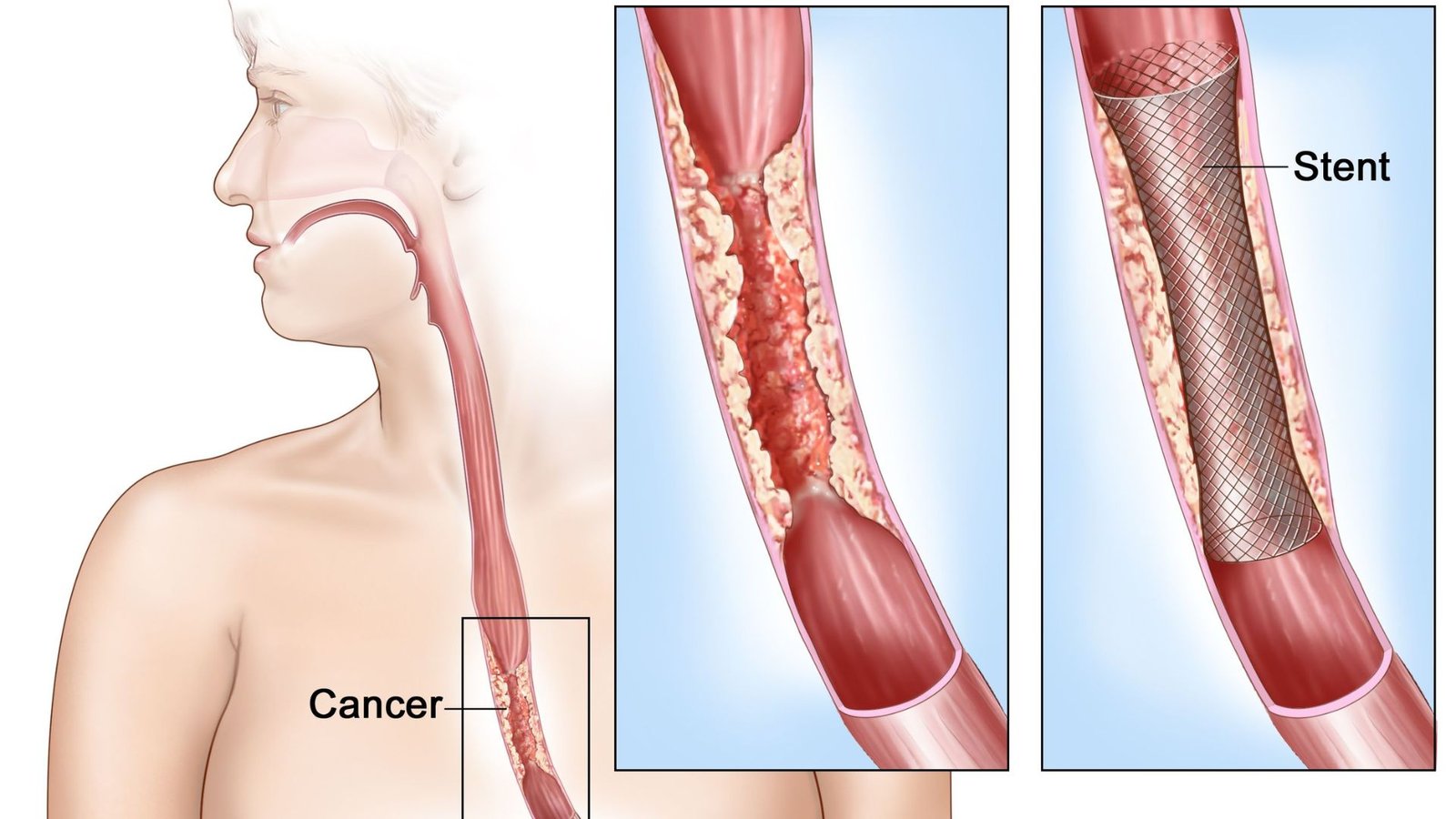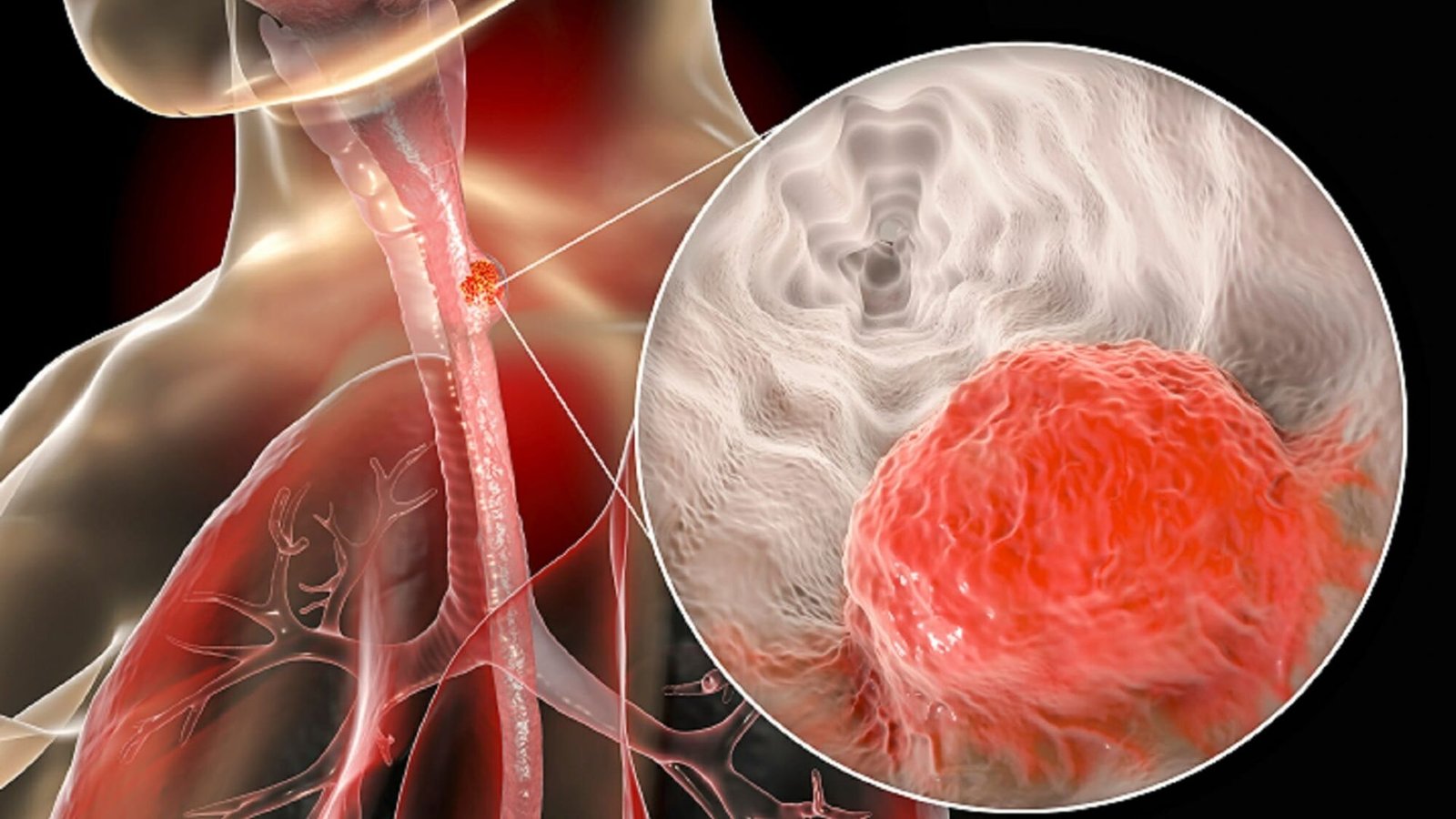Esophageal cancer is an illness that typically requires surgical interventions as part of its treatment. The surgery of the esophagus for cancer is a complex procedure that aims at removing the cancerous parts of the esophagus to prevent the further spread of the disease. In this, Dr. Ali Al Dameh stands out as an international leader with awards for his advanced and minimally invasive surgical techniques, offering the esophageal cancer treatment surgery for effective management of this challenging condition. It outlines in vivid detail how surgery for cancer of the esophagus is done, what to expect, and how professional treatment can lead to good outcomes.

Types of Esophageal Surgery for Cancer
The types of cancer esophagal surgery will be based on the size and the location of the tumour, along with the overall health. Dr Ali uses the most advanced and least invasive techniques in surgery to optimise the patient’s outcomes.
Esophagectomy:
It is one of the most recurrent surgical procedures applied in treating patients diagnosed with esophagal cancer. During the surgical operation, this involves the removal of at least part of the esophagus and may involve the resection of lymph nodes as a preventive measure against the spread of the disease.
Minimally Invasive Esophagectomy:
Dr Ali will also give minimally invasive esophagectomy to his appropriate patients. MIE results in less painful, faster recovery and chances of complications with much smaller incisions and advanced surgical tools compared to more invasive open surgery.
Endoscopic procedures:
It may also be suggested by Dr Ali in the case of a very early diagnosis of cancer by removing superficial cancerous tissues without going for more radical surgery.
What Patients Can Expect Before, During, and After Esophageal Surgery?
Preparation for Surgery:
A patient will get a complete assessment by Dr Ali before the surgery, including imagining studies. He will explain everything about the procedure, including possible risks and benefits, so the patient will know everything before going to surgery.
Adjustment in Lifestyle:
Patients may need some temporary adjustments in diet and lifestyle to make the most out of their health and itoptimise before surgery.
Preoperative Tests:
Imaging studies, endoscopy examination, and laboratory tests are mainly implemented to evaluate the advancement of the cancer and ensure an appropriate approach for its treatment.
The Surgical Procedure:
In surgical resection of the oesophagus because of cancer, Dr Ali would take out the anomaly part of the tube with the neighbouring lymph nodes in case required. During the process of esophagectomy, the stomach is normally restoriform and attached back to the remaining part of the oesophagus to make sure digestive function is preserved.
Surgical Accuracy:
The vast experience of Dr Ali ensures that the entire procedure of tumour removal can be done in a way that essential tissues remain intact.
Time and Difficulty Level:
Esophageal surgery is a complex process, likely to take a few hours. The experience from Dr Ali and the advanced technology also increased the chances of low risk and maximum effectiveness.

Conclusion
Esophageal surgery to treat the tumor is an essential operation which requires professional and personal care at top levels. Since Dr. Ali Al Dameh’s academic background and experience are way beyond the rest, patients can feel assured of receiving the best attention from professionals addressing all their needs. If you have been diagnosed with esophagal cancer or your loved one is suffering from it, consulting with a specialised surgeon like Dr Ali is your best opportunity to win safely and successfully. From the period of preparation before surgery to the recovery phase after surgery, all the cares and support by Dr Ali made a difference.

Leave a Reply